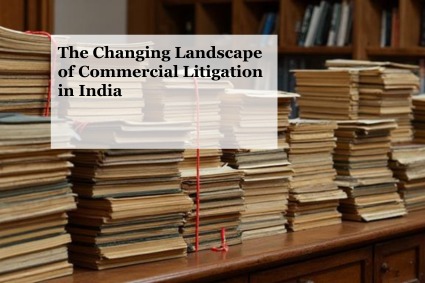Shyam Kumar Inani v. Vinod Agrawal & Ors. (2024 INSC 865)

CIVIL APPEAL NO. 2845/2015
The Supreme Court observed that the mere lack of explicit boundary details in an agreement pertaining to property does not render it vague or unenforceable. The Supreme Court further held that the transferee pendente lite is bound by the outcome of the litigation and may be added as a party to the suit, especially if the transfer occurred with knowledge of the pending proceedings and in violation of an injunction. This observation came in a batch of Civil Appeals filed by Plaintiffs in a Suit for Specific Performance of a Contract, challenging the High Court’s judgment, which had overturned the Trial Court’s decision and dismissed the suit.
The dispute arose from khasras purchased by one Sushila Devi via a registered Sale Deed executed with the previous owner. The said Sushila Devi, now owner of the Suit Property, entered into an agreement to sell in 1990 with each of the Appellants separately after receiving consideration. The Appellants had taken over actual possession of the land having paid the entire consideration. However, the Defendants, being the legal heirs of Sushila Devi, subsequently refused to execute the Sale Deed and instead applied for mutation upon the death of the said Sushila Devi, which was allowed. As such the Appellants filed separate Suits for Specific Performance against the legal heirs of the previous owner. In the agreement executed in 1990, the Appellants had paid the full sale consideration and taken possession of the agricultural land, which they had been cultivating. The Trial Court issued an interim injunction restraining the alienation of the property, and later, the Trial Court decreed the suits. The Defendants filed an appeal before the High Court, and the High Court overturned the Trial Court’s judgment, dismissing the suits. The Appellants then approached the Supreme Court. The Supreme Court noted that a purchaser who has paid full consideration and received the original title deeds would normally have taken possession. Any subsequent possession by another party would be unauthorized. The Court found the High Court’s conclusion—that the Plaintiffs were not in possession and thus barred from filing the suit—untenable. The Plaintiffs had been in possession since executing the Agreement to Sell, cultivating the land, and paying land revenue, which contradicted the Defendants’ claim that possession remained with the previous owner and her heirs.
The Court also addressed the sale deeds executed during the pendency of the suit, stating that they were subject to the doctrine of lis pendens and could not harm the Plaintiffs’ rights under the prior Agreement to Sell. The Court concluded that subsequent purchasers from third parties would only acquire the rights of their vendors and if the vendors did not have any rights, the vendees cannot be said to be in a better position. Accordingly, the Appeals were allowed, the High Court’s judgment was set aside, and the Trial Court’s order was restored.
By entering the email address you agree to our Privacy Policy.



